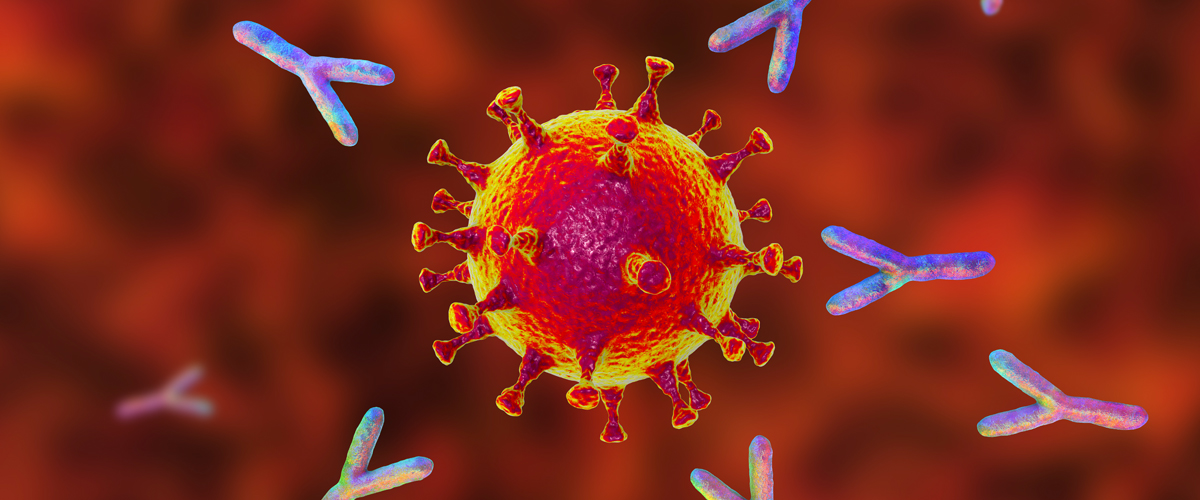COVID-19 Vaccines and Immunity: How Long Does it Take for the Vaccines to Provide Protection?
An infectious disease specialist explains how the COVID-19 vaccines work, how long it takes to develop immunity, and what is known about how long immunity lasts.

With the COVID-19 vaccines rolling out across the country and more people getting vaccinated, many are wondering how long it takes for the vaccines to provide protection. Dr. Kristen Marks, an infectious disease specialist at NewYork-Presbyterian/Weill Cornell Medical Center and an associate professor of medicine in the Division of Infectious Diseases at Weill Cornell Medicine, shares six facts about immunity after getting the COVID-19 vaccine.
1. The vaccines are very effective and may help reduce the severity of the disease.
In Phase 3 studies, both the Pfizer-BioNTech and Moderna vaccines were found to be 95% effective in the early months after the vaccine. Put simply, “If there were 100 people who would have gotten COVID, it prevented 95 of them from getting it, but it didn’t prevent all 100,” says Dr. Marks. “It definitely provides some protection, but it’s not perfect.”
The good news is that early data found that those who did contract COVID-19 after receiving the vaccine did not develop a severe form of the disease. “So even if it doesn’t completely prevent illness, the study data shows that it does reduce the severity,” says Dr. Marks.
The third vaccine authorized in the United States also provides strong protection against severe illness and death. This vaccine, made by Johnson & Johnson, reported a 72% efficacy rate in preventing moderate to severe disease from COVID-19 in the U.S. and was 85 percent effective in preventing severe disease. Among the people who received the vaccine during clinical trials, after 28 days no one who contracted COVID-19 was hospitalized or died.
2. You need both doses of the two-dose vaccines to achieve immunity.
Scientific studies suggest that taking two doses of the Pfizer-BioNTech and Moderna vaccines is very important for achieving the antibody response to provide protection and create lasting immunity.
Dr. Marks says that while there appears to be some protection 14 days after a person’s first dose, that initial protection may wane over time, which is why it’s so important to get the second shot. “There’s been talk of using one dose of the mRNA vaccines, and I’m not in favor of that, because I think that the protection provided by the first dose of these vaccines should be thought of as a bridge to the next dose,” says Dr. Marks. “You need that second dose to get the full immunity.”
Dr. Marks says that the vaccine’s protection is generally achieved somewhere between seven to 14 days after the second dose.

Dr. Kristen Marks
3. If you miss the second dose appointment, you don’t need to start over.
For the Pfizer-BioNTech vaccine, administration of the second dose is recommended to be 21 days after the first dose. For the Moderna vaccine, it’s 28 days after. The second dose should be the same type as the first one you received. If someone can’t make it to their second appointment and misses the recommended window, it doesn’t mean they will need another first shot. “You don’t need to restart the series, you just get the second one late,” says Dr. Marks. “There will definitely be reasons sometimes why people may miss it or their doctor may recommend they delay it. Everyone else should try to get it as close as they can to the recommended date.”
4. A mild reaction to the vaccine is just your immune system working.
Dr. Marks says a lot of people wonder what it means if they experience side effects, such as a fever or arm rash, and if that should prevent them from getting their second dose. “These mild side effects are actually just your immune system responding. They are often more pronounced after the second dose. It means you have a vigorous immune system when you get those reactions,” says Dr. Marks. “If people didn’t feel well at the first dose, they should be prepared for that possibility again and make sure they take some extra time [to recover] if they need it. If you had an allergic reaction or a very severe reaction from the first dose, you should talk to your doctor, but otherwise people should get the second dose.”
At the same time, people should not worry if they feel no effects after getting the vaccine. “We know from the studies, some people also have no reaction to the vaccine,” says Dr. Marks. “So if you do not experience these mild reactions this is not a cause for concern either.”
5. Experts don’t yet know how long immunity will last.
While scientists have seen that the vaccines will protect most people for the first few months after getting their second dose, they don’t have data on the long-term immunity these vaccines may provide. Since Phase 3 trials have not even completed a year of follow up, “We really don’t know whether you’re still immune a year after vaccination,” says Dr. Marks.. “Some of the clinical trials will study adding a booster in a year and comparing whether that’s better or if the immunity is just as good for two years with the two shots. That remains to be determined.”
The ongoing studies will follow participants for two years to answer these questions.
6. Even if you’re fully vaccinated, it’s important to continue to take precautions.
Although getting vaccinated is an important step in protecting people from COVID-19, it does not mean they can stop practicing precautions such as masking, social distancing, and hand hygiene. Those measures are still critical as we continue to battle the pandemic. “Right now there’s so much COVID circulating, getting the vaccines doesn’t mean you can go back to life as before,” says Dr. Marks. “I think it’s important to continue to take all the recommended precautions, so you can protect yourself and others. Until we really get a decrease in the COVID that’s circulating, all of that remains necessary.”
